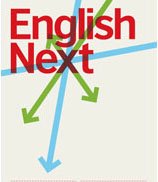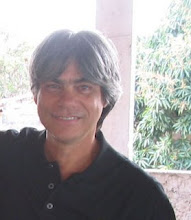Lulaki
Língua Inglesa: Uma porta aberta para a comunicação com o mundo!
16.3.08
3.11.06
To Aninha, my wife, with love!



A vida é uma eterna procura da felicidade
Que a todo custo as pessoas tentam encontrar
Ás vezes, a procuram a vida inteira sem achar
O que as fariam felizes - não importa a idade
.....................................................................................................
Umas sempre persistem, outras logo, logo desistem
Há aquelas que, simplesmente, deixam a vida passar
"Oh! Deus, Deus, onde é que a felicidade pode estar?"
É a pergunta que, a todo instante, em se fazer, insistem
....................................................................................................
Não sabem que ela não mora em qualquer lugar
Ou esteja tão longe que não se possa vê-la
Basta, somente, deixar o coração vivê-la
E a alma fruir como um perfume no ar.
.....................................................................................................
Eu mesmo, lhe digo, a encontrei - experiência minha
Depois de procurá-la em todos os bares, ruas e esquinas
Entre as bocas voluptuosas de mulheres e meninas
Eu a encontrei em você, minha querida Aninha!
2.11.06
Woman: So many things in a single word!

Women have been important to the mankind since the beginning of the years. It doesn’t matter if they have lived hard in countries in which they are regarded as an object or an inferior being. It seems that they find an invisible and spiritual strengh that make them present at the most important events in their societies. It is said that there is always a woman from behind a famous man (how many things does a woman say to her husband on a bed?!). Their fragile bodies and natural obstacles from their culture are not able to stop them thinking over or even acting by themselves when it is necessary to do so.
There is an uncountable number of women that made history: Virgin Mary and all the saint women of the Catholicism, Cleopatra, Queen Victoria, Golda Meir, Indira Gandhi, Eva Perón, Margaret Thacher, Condoleezza Rice, Olga Benario Prestes, Sarah Kubitschek de Oliveira and so on, just to mention holy people and politicians. There are writers, educators, scientists, civil rights crusaders, artists, entertainers, and others.
In spite of that, nowadays, even in the developed countries, women have always made an effort to achieve the place they deserve in the world. They have faced all kind of prejudice in such a society. However, many things have changed, mainly from the middle of the last century on. Little by little they are doing almost everything men do. Women are already competing with men for places in good universities, private or public jobs, the armed forces, and professions that were practiced only by men before.
I am a man, but I respect women and, finally, I ask a question that I know it cannot be answered now: How Would (or will) the world be run by women in the future? Naturally it would not (or won’t) be “tiresome”. At least this is Catherine Morland’s thought in Jane Austen’s Northanger Abbey
“But history, real solemn history, I cannot be interested in... I read it a little as a duty, but it tells me nothing that does not either vex or weary me. The quarrels of popes and kings, with wars or pestilences, in every page; the men all so good for nothing, and hardly any women at all -- it is very tiresome”
There is an uncountable number of women that made history: Virgin Mary and all the saint women of the Catholicism, Cleopatra, Queen Victoria, Golda Meir, Indira Gandhi, Eva Perón, Margaret Thacher, Condoleezza Rice, Olga Benario Prestes, Sarah Kubitschek de Oliveira and so on, just to mention holy people and politicians. There are writers, educators, scientists, civil rights crusaders, artists, entertainers, and others.
In spite of that, nowadays, even in the developed countries, women have always made an effort to achieve the place they deserve in the world. They have faced all kind of prejudice in such a society. However, many things have changed, mainly from the middle of the last century on. Little by little they are doing almost everything men do. Women are already competing with men for places in good universities, private or public jobs, the armed forces, and professions that were practiced only by men before.
I am a man, but I respect women and, finally, I ask a question that I know it cannot be answered now: How Would (or will) the world be run by women in the future? Naturally it would not (or won’t) be “tiresome”. At least this is Catherine Morland’s thought in Jane Austen’s Northanger Abbey
“But history, real solemn history, I cannot be interested in... I read it a little as a duty, but it tells me nothing that does not either vex or weary me. The quarrels of popes and kings, with wars or pestilences, in every page; the men all so good for nothing, and hardly any women at all -- it is very tiresome”
29.10.06
Children are happy by their own nature.

In spite of all the problems that lead them to become men and women full of fears, frustration, sadness, bad education, psychological problems in general., they are able to live, in their childhood time, laughing, playing, singing, and doing eveything that makes them happy. It looks like a paradox! Problems that affect their family as a whole does not seem to affect themselves. At least, with the same intensity.
It may be a false assertion, indeed. We must be careful in observing children day by day. They are fragile, weak, defenseless, and almost completely dependent on adults. We should pay special attention to them. There are, in public schools, mainly in a northestern city of Brazil like Salvador, a lot of underage sudents that bear all the problems that affect all poor students all over the world: Poverty, hunger, abuse, deseases, exploitation, etc. We deal with these problems in our classes every day and it is our duty to try doing everything to give our children, at least, more dignity to their lives; help them to find appropriate ways to be successful in the future.
It may be a false assertion, indeed. We must be careful in observing children day by day. They are fragile, weak, defenseless, and almost completely dependent on adults. We should pay special attention to them. There are, in public schools, mainly in a northestern city of Brazil like Salvador, a lot of underage sudents that bear all the problems that affect all poor students all over the world: Poverty, hunger, abuse, deseases, exploitation, etc. We deal with these problems in our classes every day and it is our duty to try doing everything to give our children, at least, more dignity to their lives; help them to find appropriate ways to be successful in the future.
My Childhood
I was very happy when I was a child.
I lived in a new growing section of Salvador – IAPI – and there were a lot of large free areas, inside and outside my apartment building, in which I ran and played with my brothers and friends. At that time there were usually many children in a family and so was mine. We were ten: My father, my mother and my seven siblings (five girls and two boys). I was the eldest. There was not so much violence, hunger, and ill in our city then. I do not remember to have heard of so many serious and terrible social problems we are bearing nowadays even considering the fact that I was just a child. We all used to ride bicycles, to play soccer, to jump and climb the trees. We also used to play games, such as hide-and-seek, hopscotch, cops and robbers, cowboys and indians, circle game (mainly for the little girls), tag, pin-the-tail-on-the-duck, and others. My parents were very happy and cheerful persons. They really celebrated all the traditional parties with us: Carnival, Holy Week, Saint John’s festival, Christmas, etc. All of our birthdays were celebrated. My mother was a very religious woman and made us participate of the main catholic events year after year and we did enjoy it!
I was very happy when I was a child ... because I had a family, friends, and a good time.
I lived in a new growing section of Salvador – IAPI – and there were a lot of large free areas, inside and outside my apartment building, in which I ran and played with my brothers and friends. At that time there were usually many children in a family and so was mine. We were ten: My father, my mother and my seven siblings (five girls and two boys). I was the eldest. There was not so much violence, hunger, and ill in our city then. I do not remember to have heard of so many serious and terrible social problems we are bearing nowadays even considering the fact that I was just a child. We all used to ride bicycles, to play soccer, to jump and climb the trees. We also used to play games, such as hide-and-seek, hopscotch, cops and robbers, cowboys and indians, circle game (mainly for the little girls), tag, pin-the-tail-on-the-duck, and others. My parents were very happy and cheerful persons. They really celebrated all the traditional parties with us: Carnival, Holy Week, Saint John’s festival, Christmas, etc. All of our birthdays were celebrated. My mother was a very religious woman and made us participate of the main catholic events year after year and we did enjoy it!
I was very happy when I was a child ... because I had a family, friends, and a good time.
14.10.06
Sou um professor de Inglês

Eu sou um professor de Inglês. Na verdade, sou, antes de tudo, um professor... Com todas as responsabilidades e compromissos que minha profissão exige. Não importa a locução adjetiva que se lhe acrescente: de Biologia, de Matemática, de História, de Geografia, ou de Inglês (Que me desculpem os colegas das disciplinas não citadas!); sou um professor com todo o amor que sinto por essa profissão, pois ensinar me exige um envolvimento passional com todo o processo que transcende os limites do meu conhecimento.
10.10.06
Por que Estudar Inglês?

Dominar o Inglês como uma 2ª língua significa poder interagir com pessoas de todas as partes do mundo; significa alçar vôo sobre as fronteiras físicas do nosso país, sem um passaporte na mão ou dinheiro no bolso, com possibilidades quase infinitas de comunicação, através dos meios tecnológicos de ponta como a informática e telefonia a um custo muito baixo. Não devemos nos deixar levar por idéias ufanistas ou xenófobas e, assim, aceitar o fato de que a maior superpotência mundial - os Estados Unidos - fala o Inglês como língua nativa e, consequentemente, todos os trabalhos desenvolvidos por ela, em todos os campos do conhecimento humano, são registrados naquele idioma.





